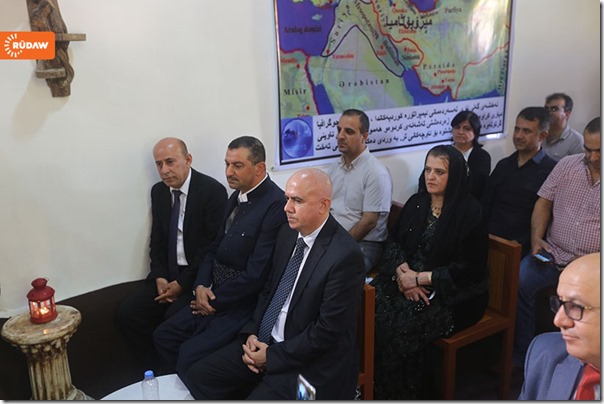Zoroastrians in the Kurdistan Region who opened their first official temple in Sulaimani last week hope that their first official temple in the region will provide the right environment to “reintroduce” Kurds to their ancestral religion.
Article by By Sartip Othman | RUDAW
Zoroastrianism was a dominant religion in the region that was largely lost following two major historical military campaigns, one during the time of Alexander the Great and the other during the Islamic campaign which brought much of present-day Middle East under Islamic rule in the seventh century.
At the opening ceremony of the temple the followers lit a fire and played the frame drum or daf to celebrate the occasion, two elements of their rituals.
Zoroastrians are best known by their religious motto “Good Thoughts, Good Acts, and Good Deeds”. They believe in one God, that the world is divided between the good, represented by fire or light in their rituals, and the devil, and a day of judgment.
Many of its adherents in Kurdistan believe the founder of the religion, Zoroaster or Zardasht as it is called in Kurdish, was a Kurd and he spoke a variation of Kurdish language called Avesta.
Kurdish Zoroastrians believe that the Kurdish dialect of Hawrami, still widely spoken in Kurdish areas in Iran and Iraq, has many similarities to the ancient language.
Hawramis believe that the language has remained largely intact due to the limited contact they had with the outside world. Their mountainous areas kept them safe from foreign rule for much of their history.




